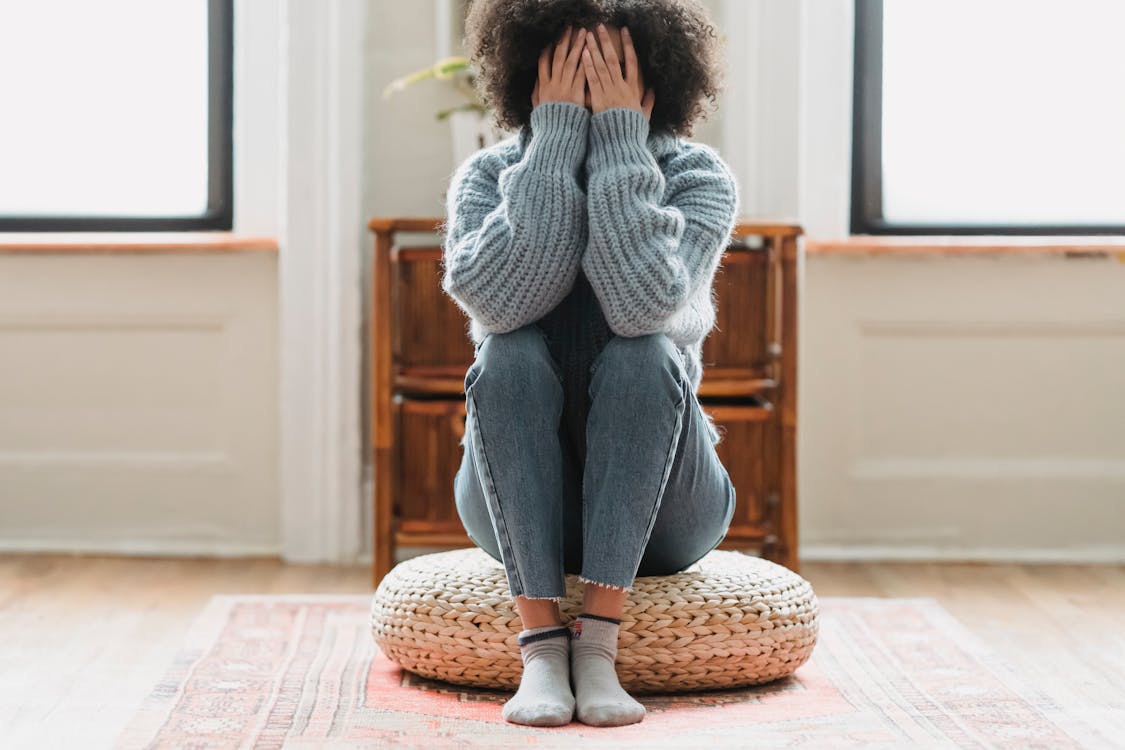These pandemic times have caused many of us to stop and question how we are living our lives. But what exactly is burnout, and how can you avoid it?
The early warning signs

If you are starting to feel an overwhelming sense of exhaustion, you might be experiencing the early signs of burnout. This is a complex syndrome and affects everyone in different ways, but it generally has three key components:
- Exhaustion – emotional, physical, or mental;
- Emotional detachment or a feeling of numbness;
- Feelings of inadequacy.
The exhaustion is often accompanied by a feeling of overwhelm and a sense of being unable to cope. You might start to isolate yourself, avoid intimacy, or stop phoning or meeting up with friends. Unfortunately, when you withdraw emotionally, it can have a devastating impact on those around you, whether it’s your partner, children, family, clients, or patients.
When you are running on empty, you can no longer work effectively, and you might lose motivation or feel disillusioned. Work that you once enjoyed can become a burden. Frustration, irritability, cynicism, or loss of enjoyment are other signs that could indicate you are heading towards burnout. Since the onset of burnout tends to be insidious, it is even more important to recognize the warning signs so that you can take action before it’s too late.
Post-Pandemic Stress Disorder (PPSD)

There is a growing recognition amongst some psychotherapists of a condition called Post-Pandemic Stress Disorder (PPSD) due to being exposed to numerous stressors or micro traumas over the last year. This could have been from the loss of a loved one, the threat of redundancy, adjusting to working online, juggling homeschooling with work commitments, the loss of supportive relationships, or uncertainty about the future. Worries about your family, or yourself, getting Covid, will have been amplified by distressing reports on the news. You may have been traumatized by different experiences during the pandemic, even without having been on the NHS frontline. If so, your body may be stuck in a chronic stress response.
This helps to explain how, for many, the freedom from lockdown has led to high levels of fear and anxiety, which may be accompanied by nightmares, hyper-vigilance, difficulty sleeping, a loss of confidence, and feeling unable to cope with the pressures of life. Mentally, you may find it more challenging to focus your attention or make decisions. Some symptoms may be similar to those of burnout. However, PPSD is likely to be associated with higher levels of anxiety, due to the impact of trauma on the body.
If you are becoming aware that you are no longer functioning effectively, have a fear of going out, or are experiencing severe signs of burnout or PPSD, I encourage you to see your GP or seek psychotherapeutic support.
The value of mindfulness

Mindful awareness is an invaluable practice, especially when there is so much change and uncertainty. When you become more aware of your thoughts, feelings, and bodily sensations from moment to moment, you acknowledge what is happening, without suppressing or ignoring anything that might be considered ‘uncomfortable’ – whether it is anxiety, hopelessness, irritability, or grief. When you get in touch with those feelings, it’s helpful to remind yourself that you are not alone; many people are experiencing something similar with the easing of lockdown. You may wish to integrate a self-compassion practice into your day.
A regular mindfulness practice will help you recognize when the pressure is rising and identify what aspects of your life need attention. It can also be helpful to ask yourself questions such as: What do I need right now? What could help bring my life more into balance?
You may become aware of the need to walk in the forest, phone a friend, have an early night, or seek professional support. If you are under considerable pressure or your current commitments are unsustainable, you might recognize the importance of shifting your priorities. Unfortunately, a holiday is not enough to help avert burnout. It needs a deeper level of change.
Regular mindfulness practice can also help you identify unhelpful behavior patterns, such as setting yourself unrealistic expectations, having perfectionist tendencies, or taking care of everyone else and ignoring your own needs. Equally, if you find it hard to say ‘no’ to unreasonable requests, that can make it make it more challenging to carve out time for rest and renewal.
Below, you will find a list of ideas that can help you reduce stress, enhance self-care, or avoid burnout. Start with one strategy and integrate that into your schedule before moving to the next. It’s surprising how one thing, done consistently, can transform your life. You will know intuitively which is most helpful for you, right now.
7 ways to avoid burnout
1. Use expressive writing when your mind is spinning o emotions are in turmoil. This incredible tool enhances your wellbeing by helping you identify, process, and release any disturbing thoughts, feelings, and emotions. All it needs is for you to set aside 15-20 minutes (or even just five minutes is better than nothing). During this time, write continuously, without worrying about grammar, punctuation, or spelling. You may be surprised how you gain a greater understanding of yourself, or discover the silver lining behind a cloud. You may wish to tear up or scrunch your writing into a ball and throw it away when you have finished.
2. Be more honest with your partner, close family, colleagues about how you are really feeling, and what you are finding difficult. It’s so easy to think they know what you are going through, but they may not be aware of what’s really happening for you in reality.
3. Reach out for help when you need it. Suppose you need time to relax and recharge. In that case, you can ask your partner to come to cook the evening meal, see if a friend can pick up your children from school, or tell your teenager you cannot take them to football training that evening. It’s also helpful to know when you might need help from a psychotherapeutic professional. Asking for help is a sign of courage, not weakness.
4. Give yourself permission to set clear boundaries and say ‘no’ to unreasonable requests. When asked to do d something, even if it’s a social engagement that you would typically enjoy, pay close attention to your body’s response. If, for example, you notice a tightness in the chest, sinking in your stomach, or your jaw clenching, it could indicate that on some level it might be helpful to say ‘no’.
5. Create a regular time in your schedule to replenish mind and spirit through time in nature, exercise, creativity, body, music, or having fun with your family and friends. Intuitively, you will know what is most helpful for counteracting stress and restoring a sense of wellbeing.
6. Remember the magical moments in your life. Immerse yourself in happy memories, especially ones related to a sense of gratitude or appreciation, and pay particular attention to the feelings in your body. Generating positive heartfelt emotions has been shown to reduce the stress response and improve physical, mental, and emotional wellbeing.
7. Develop a regular sleep routine and avoid caffeine other stimulants in the evening. Since the blue light from phones, laptops, and other devices inhibits melatonin production – the sleep-inducing hormone – it’s best to switch off electronic gadgets two hours before sleep. Dimming the lights in the evening and black-out blinds can also help.

